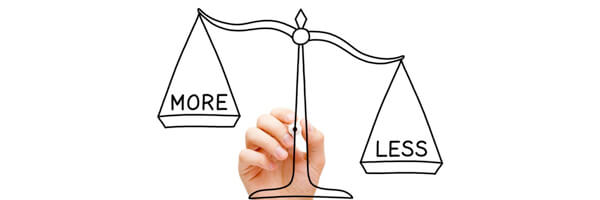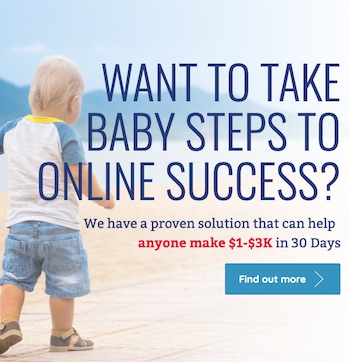You’ve been told to work hard, save money, get out of debt, and live below your means. That advice is obsolete if you want to get ahead in life. Robert Kiyosaki argues these exact points in his new book, Rich Dad’s Increase Your Financial IQ.
Which is the latest volume in Kiyosaki’s popular “Rich Dad” series of books – two books include: Rich Dad Poor Dad, and Rich Dad’s Cashflow Quadrant.
 These best-sellers have motivated many people (including my family) to take control of their financial lives. Both of these books have been summarized for you here.
These best-sellers have motivated many people (including my family) to take control of their financial lives. Both of these books have been summarized for you here.
Here’s My Rich Dad’s Increase
Your Financial IQ Book Summary!
Financial Intelligence
“It is not real estate, stocks, mutual funds, businesses, or money that make a person rich. It is information, knowledge, wisdom, and know-how, a.k.a. financial intelligence, that makes one wealthy.” – Robert Kiyosaki.
Kiyosaki divides financial intelligence into five “Financial IQs”:
- Making more money. This is measured by how much money you earn. If you make $120,000 a year, you have a higher Financial IQ than someone earning $40,000 a year.
- Protecting your money. Once you earn your money, you need to hold onto it. So you need to protecting your money, especially from taxes.
- Budgeting your money. “Being able to live well and still invest no matter how much you make requires a high level of financial intelligence,” Kiyosaki writes. This Financial IQ is measured by how much money you have left after expenses.
- Leveraging your money. This Financial IQ is measured by return on investment. Answer this: How well do you make your budget surplus generate more money?
- Improving your financial information. Financial information doesn’t just mean knowledge of basic financial concepts, but also means detailed knowledge of the investments you make.
Most of the book is devoted to exploring these five aspects of financial intelligence in detail.
Financial IQ #1: Making More Money
Many people fail to acquire wealth, Kiyosaki says, because they want the money without the work. He writes,“What many people do not realize is that it’s the process that makes them rich, not the money.”

It’s by learning to make money that you can continue to make money.
In order to make money, you must also learn to control your emotions. You must learn to defer gratification. Don’t sacrifice your financial future for a few bucks today.
According to Kiyosaki, the key to making money is learning to solve problems. “In order to grow wealthy you must come to terms with the fact that problems will never go away,” he writes.
Identify the problems preventing you from wealth, tackle them head-on, and the money will follow.
Financial IQ #2: Protecting Your Money
Once you’ve begun to make money, you need to protect it from the 7 financial predators.
- Bureaucrats — We need to pay taxes, but it’s our job to (legally) pay as little as possible.
- Bankers — Banks are constantly trying to siphon bits of your money in the form of fees. It’s important to watch out for and protect against this.
- Brokers — Like fees from brokers they can chip away at your wealth. He cites brokers who “churn” accounts, buying and selling stocks frequently in order to generate more commissions.
- Businesses — “All businesses have something to sell,” Kiyosaki writes. As their job is to part you from your money; yours is to keep it. He suggests asking yourself whether any particular purchase will make you richer or poorer.
- Brides and beaus — Money plays an key role in any relationship. You must trust your partner, must reach an understanding about finances.
- Brothers-in-law — Here, his point is that in order to protect your estate from family members you don’t intend to share it with, you need to plan for your death.
- Barristers — Finally, it’s important to protect yourself from legal difficulties.
Even though Kiyosaki lists seven possible pitfalls, he offers little practical advice for coping with them.
Financial IQ #3: Budgeting Your Money

There are two ways to solve a budget crunch: decrease your spending or increase your income. Either will erase a budget deficit, but Kiyosaki believes (as I do) that in the long run, increasing income is a better solution.
Kiyosaki explains that it’s important to think of a budget surplus as a fixed expense. If you decide to save 10% of your income, then make this ten percent a fixed item in your budget.
Treat it just as you would any other bill. Pay yourself first. It’s also important to refuse to live below your means – instead increase your means.
Financial IQ #4: Leveraging Your Money
 I found this chapter to be the longest and most frustrating chapter of the entire book. It represents the core of Kiyosaki’s financial philosophy. However it’s not presented in a way that makes it relevant to the average person.
I found this chapter to be the longest and most frustrating chapter of the entire book. It represents the core of Kiyosaki’s financial philosophy. However it’s not presented in a way that makes it relevant to the average person.
Leverage — borrowing money to increase the power of your own cash is good. If you have the financial intelligence to control the investment. But if you’re not in control of the investment, then leverage is risky.
“Most of the people being hurt by the real estate meltdown are people who were counting on the real estate market to keep going up and increasing their home’s value,” he writes.
They borrowed against their home’s inflated value, however had no control over whether the housing market rose or fell. This is a lack of financial intelligence.
Kiyosaki argues that one should use leverage to make low-risk investments, investments in which you, as the investor, have control. This sounds great, but he doesn’t provide any relevant examples.
He only discusses his recent purchase of a 300-unit, $17 million apartment complex in Tulsa, Oklahoma. I don’t know about you but I do not $17 million to invest into one investment. The average person might only have $17,000? or even $1,700 to invest with right now?
So we are left wondering at the end of this character on how does the average person make leverage work for them?
Financial IQ #5: Improving Your Financial Information

In order to improve your financial information, it’s important to:
- Separate fact from opinion. Many gurus are happy to offer their opinions — “gold is going up!” — but it’s foolish to make financial decisions based on these. Base your decisions on facts.
- Verify information. Don’t trust just one source of information, but seek confirmation from other parties.
- Know the rules. If you don’t understand how an investment works, don’t make it. “Rules provide a valuable source of information about how the game of money is played,” Kiyosaki writes.
- Understand trends. Trends are historical facts. Smart investors can use trends to make informed decisions. However, it’s important to note that trends do not project to future facts. Only to opinions about possible futures. Still, trends are valuable sources of financial information.
“Ultimately,” Kiyosaki writes, “it is not the asset that makes you rich. Information makes you rich.”
Though an overview of the five Financial IQs forms the bulk of this 200-page book, it’s actually the last fifty pages that hold the most value. Where Kiyosaki discusses “the integrity of money” and explains how to develop your financial genius.
Financial Integrity
I like the idea of Rich Dad’s Increase Your Financial IQ. The book fills a niche about which little has been written.
It’s motivational. It’s a breath of fresh air and offers a perspective often missing in personal finance discussion. I also like that his writing always motivates me to action, pushing me to pursue my goals.
However, there is #1 Point I Really Do Not Agree With…

Diversification isn’t a hoax, or a scam. Other than Kiyosaki, it’s embraced by most financial authors I’ve ever read or heared about.
Diversification is a central belief of the modern portfolio theory. It’s backed by facts, not opinions.
In the book Kiyosaki says “The richest investor in the world, Warren Buffett, does not diversify.” His implication is that you should not diversify either, but that’s completely counter to what Buffett believes.

For 99% of all investors, Buffett recommends diversified index funds. So It’s duplicitous of Kiyosaki to pretend otherwise.
I hope you enjoyed my summary of Rich Dad’s Increase Your Financial IQ. If you would like to read it yourself you can get a copy here.
As always with Kiyosaki, there were more golden nuggets of information to be found in his book to really get you thinking.
If you want or need any help connect with us on one of our social media platforms or just Messenger us (Private Message Us) on our Facebook Messenger link – m.me/EasyOnlineBizSolution
I will leave you with this message: ‘if you do what you love – money will follow.’
Talk Soon,
Nicky Cane

 DISCOVER the EASIEST & FASTEST Way ANYONE Can MAKE $100 to $1,000 per Sale.
DISCOVER the EASIEST & FASTEST Way ANYONE Can MAKE $100 to $1,000 per Sale.








 I found this chapter to be the longest and most frustrating chapter of the entire book. It represents the core of Kiyosaki’s financial philosophy. However it’s not presented in a way that makes it relevant to the average person.
I found this chapter to be the longest and most frustrating chapter of the entire book. It represents the core of Kiyosaki’s financial philosophy. However it’s not presented in a way that makes it relevant to the average person.



 They feel like it doesn’t work or doesn’t work for them. They’ve tried, they’ll explain, and they didn’t see any results—it’s a seam, they’re a failure or it’s “too much” right now.
They feel like it doesn’t work or doesn’t work for them. They’ve tried, they’ll explain, and they didn’t see any results—it’s a seam, they’re a failure or it’s “too much” right now.


 The no. 1 problem we hear entrepreneurs complain about is
The no. 1 problem we hear entrepreneurs complain about is 


 5. Develop a Strong Positive Self-Image by Seeing Yourself as an Expert in the field
5. Develop a Strong Positive Self-Image by Seeing Yourself as an Expert in the field





